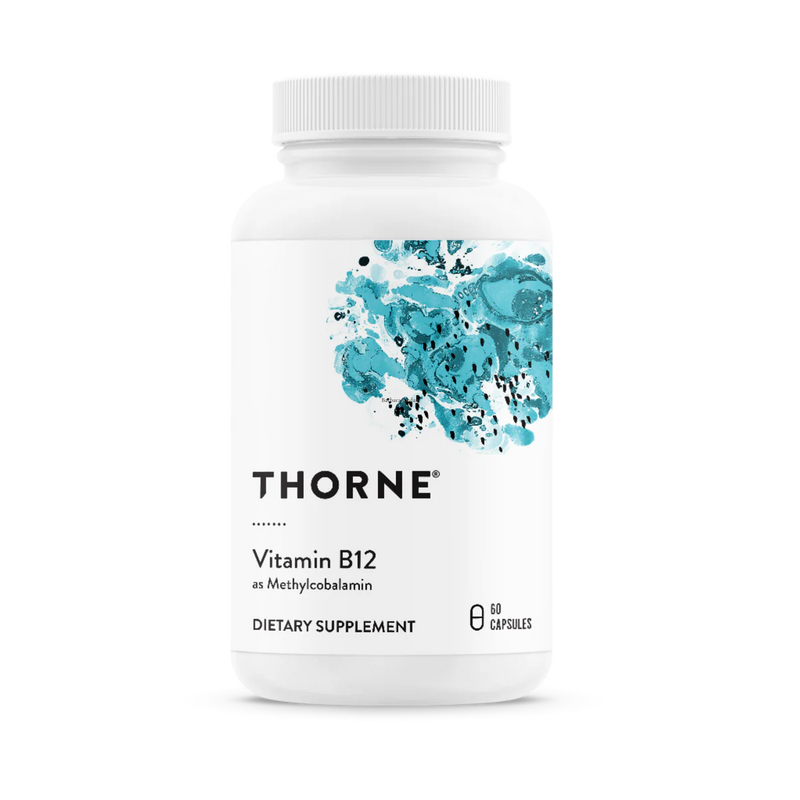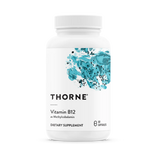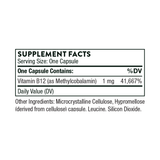Vitamin B12
Regular price
$50.00
$50.00
Sale
Vendor: Thorne Research
Product Details
|
Looking for additional guidence on your health journey? Here's how we can help.
Looking for Personalized Health Guidance?
|
60 Capsules
Methylcobalamin is an active, tissue-ready form of vitamin B12
- an active form of vitamin B12 more readily used by the body
- supports heart health and nerve function
- helps maintain normal circadian rhythms to improve sleep
- supports healthy methylation processes in the body
Methylcobalamin (an active form of vitamin B12) is essential for recycling homocysteine and the formation of methyl donors involved in cardiovascular function, sleep, blood cell formation, and nerve function. Most vitamin B12 supplements contain cyanocobalamin; however, the liver must first "detoxify" the cyanide molecule and attach a methyl group to form methylcobalamin from the cyanocobalamin.
Methylcobalamin is already in the biologically active, tissue-ready form. Evidence indicates the body utilizes methylcobalamin more efficiently than it does cyanocobalamin. Research shows the quantity of cobalamin detected following a small oral dose of methylcobalamin is similar to the amount following administration of cyanocobalamin; but significantly more cobalamin accumulates in liver tissue following administration of methylcobalamin. Human urinary excretion of methylcobalamin is about one-third that of a similar dose of cyanocobalamin, indicating substantially greater tissue retention.





